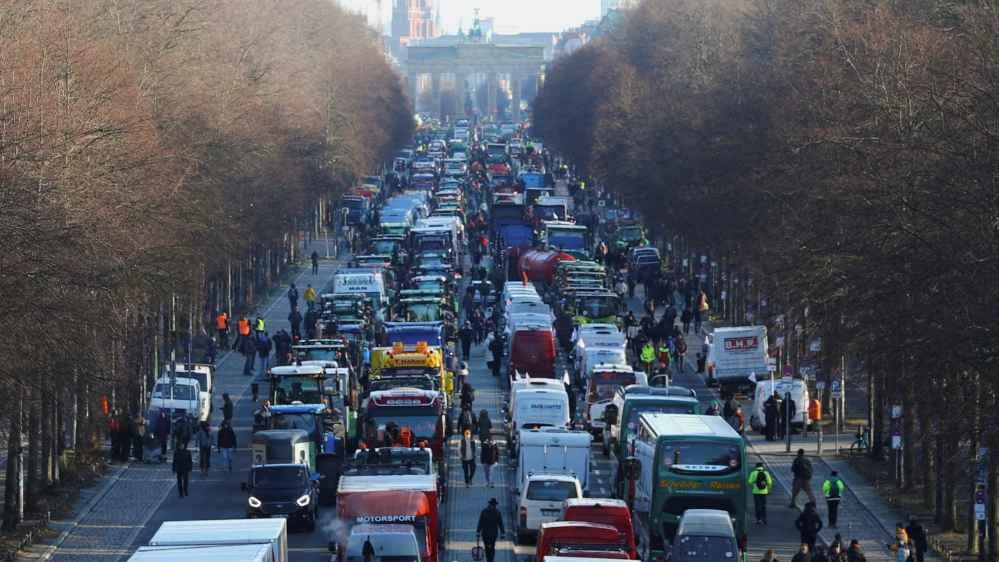
Summary
Thousands of German farmers disrupt roads across Europe, protesting the government’s plans to eliminate subsidies, including those on agricultural diesel. The demonstrations cause major traffic disruptions in Berlin, marking the beginning of a week-long protest against the proposed agricultural subsidy phase-out.
Thousands of German farmers have paralyzed roads in Europe’s largest economy, expressing their discontent with the government’s decision to eliminate subsidies, including benefits for cheaper agricultural diesel. The week-long nationwide protest commenced in Berlin, where convoys of tractors and trucks halted traffic during rush hour.
Jörg Pfandlo, an agricultural worker from Brandenburg, conveyed the frustration within the industry, stating, “The farmers have to ensure that food is there for the population. But in the end, it’s made so difficult for them, now with the cuts and the like, that they’re basically scraping by at the subsistence level and are basically no longer able to make it economically viable. And at some point, the money runs out.”
Chancellor Olaf Scholz’s coalition faced setbacks in budget planning, dealing with an $18 billion deficit. The 2024 draft budget proposes the removal of tax breaks for agriculture and a gradual phasing out of diesel subsidies for farmers over several years.
Vice Chancellor and German Economy Minister Robert Habeck emphasized the government’s position, stating, “Because of the cost pressure, we in the German government have shown goodwill to the farmers. We will keep an essential part of the subsidies being discussed now: the tax exemption for agricultural vehicles and the step-by-step subsidy cuts for agricultural diesel. That way, it will be more fair. However, we can’t do without it altogether. The pressure to save following the Constitutional Court’s ruling exists. We were forced to save billions of euros ad hoc.”
Amidst the protests, concerns about rising tensions surfaced. Farmers’ unions urged protesters not to target politicians’ residences, highlighting the risk of extremist groups exploiting the farmers’ grievances. Vice Chancellor Habeck warned of calls for a coup and the emergence of extremist factions during the protests.
READ ALSO
- Nigerian Man, 54, Sparks Outcry with Alleged ‘Marriage’ to Four-Year-Old for Health Reasons
- Outcry Over Putin’s Decree Granting Russian Citizenship to Ukrainian Children
- China Tops List: Trump’s Businesses Accused of Receiving $7.8 Million from foreign nations
The demonstrations spread across cities like Munich and Bremen, causing disruptions beyond the roads. In Bremen, a VW car plant had to halt production due to blocked access. More farmer protests are scheduled, culminating in a large-scale action in Berlin on January 15. Additionally, Germany faces a three-day national rail strike starting January 10, compounding transportation chaos nationwide.
